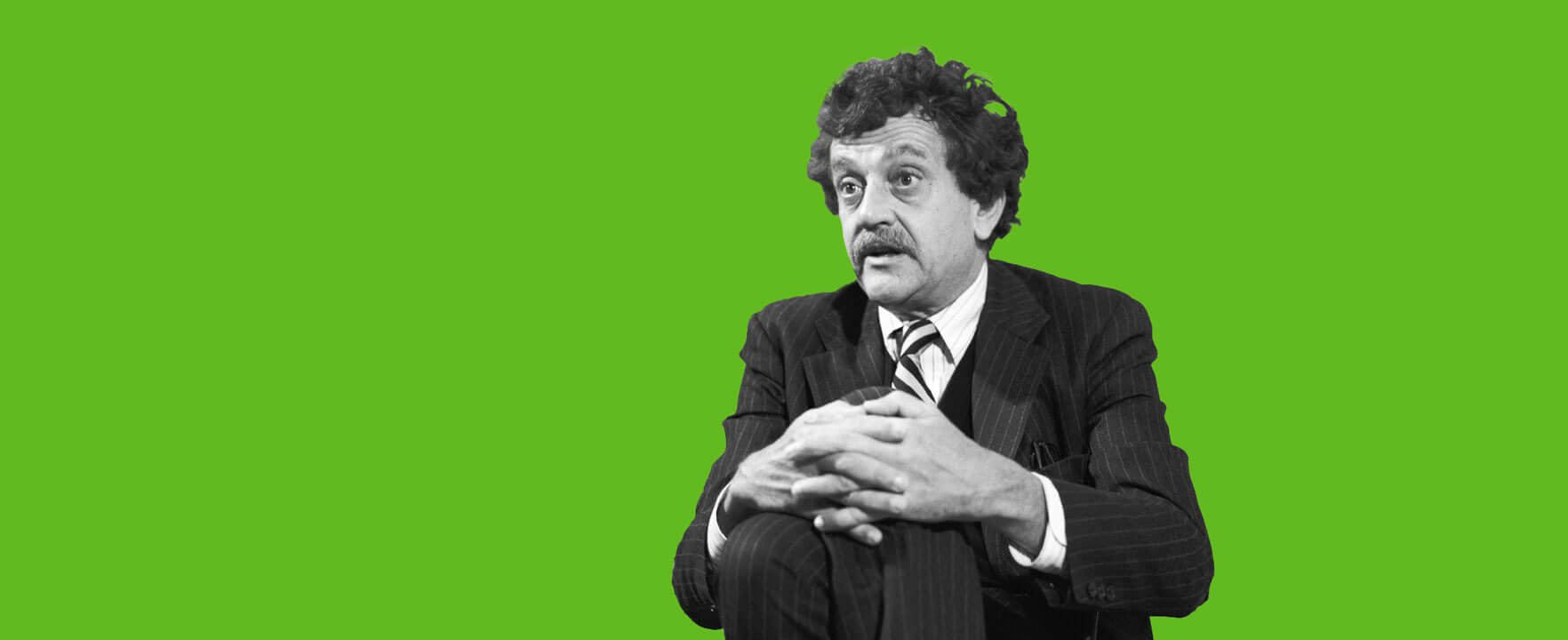When Kurt Vonnegut passed away in 2007, he left the world with a body of work that spans more than half a century. His unique style — satirical and funny, with characteristically short and simple sentences that express complex ideas in an approachable yet profound manner — is evident throughout his three short-story collections, plays, autobiographical works, and 14 novels, including 1969’s Slaughterhouse-Five and 1963’s Cat's Cradle.
Vonnegut’s writing was often fatalistic, his humor dark. He had, after all, seen the horrors of World War II firsthand. He was captured by the Germans during the Battle of the Bulge, and was kept as a prisoner of war in Dresden. He survived the near-total obliteration of the city by seeking refuge in a meat locker at the slaughterhouse where he was imprisoned — an experience he later dealt with, in his own inimitable style, in Slaughterhouse-Five. (“So it goes” is the novel’s shrug-like refrain.)
That said, Vonnegut was anything but negative. He was a humanist, and for many years, he served as the president of the American Humanist Association. “Being a humanist,” he once wrote, “means trying to behave decently without expectation of rewards or punishment after you are dead.” He wrote and spoke fervently but honestly about war and religion and politics, but always from a fundamental perspective of kindness and love — using humor as the salve for life’s many trials.
Through his writing, interviews, and lectures, Vonnegut left us with a wealth of quotes, covering everything from the nature of literature to the importance of jokes, and what he saw as one of the most crucial things in life, if not the most crucial thing: to be kind.
Literature is idiosyncratic arrangements in horizontal lines in only twenty-six symbols, ten Arabic numbers, and about eight punctuation marks.
The telling of jokes is an art of its own, and it always rises from some emotional threat. The best jokes are dangerous, and dangerous because they are in some way truthful.
I urge you to please notice when you are happy, and exclaim or murmur or think at some point, “If this isn’t nice, I don’t know what is.”
Nothing I can say can have any effect, except to say to somebody else, “You're not alone.” That's as far as it goes.
The function of the artist is to make people like life better than before.
And how should we behave during this Apocalypse? We should be unusually kind to one another, certainly. But we should also stop being so serious. Jokes help a lot. And get a dog, if you don’t already have one.
Peculiar travel suggestions are dancing lessons from God.
A purpose of human life, no matter who is controlling it, is to love whoever is around to be loved.
Practicing an art, no matter how well or badly, is a way to make your soul grow, for heaven’s sake. Sing in the shower. Dance to the radio. Tell stories. Write a poem to a friend, even a lousy poem. Do it as well as you possibly can. You will get an enormous reward. You will have created something.
We are what we pretend to be, so we must be careful about what we pretend to be.
I want to stay as close on the edge as I can without going over. Out on the edge you see all kinds of things you can't see from the center… Big, undreamed-of things — the people on the edge see them first.
Any reviewer who expresses rage and loathing for a novel is preposterous. He or she is like a person who has put on full armor and attacked a hot fudge sundae or a banana split.
Laughter and tears are both responses to frustration and exhaustion. I myself prefer to laugh, since there is less cleaning up to do afterward.
Let others bring order to chaos. I will bring chaos to order. If all writers would do that, then perhaps everyone will understand that there is no order in the world around us, that we must adapt ourselves to the requirements of chaos instead.
If we are wounded by an ugly idea, we must count it as part of the cost of freedom and, like American heroes in the days gone by, bravely carry on.
We are healthy only to the extent that our ideas are humane.
Hello, babies. Welcome to Earth. It’s hot in the summer and cold in the winter. It’s round and wet and crowded. At the outside, babies, you’ve got about a hundred years here. There’s only one rule that I know of, babies — “God damn it, you’ve got to be kind.”
Photo credit: Sueddeutsche Zeitung Photo/ Alamy Stock Photo
















